Making Your Point vs Making an Appeal
 Talking to a skeptic about the Reality of Christ can be a real challenge.
Talking to a skeptic about the Reality of Christ can be a real challenge.
In some cases, they’re genuinely curious. They recognize the elegance of the human experience and the complexity of the universe as something that has to have been designed for a purpose as opposed to it being nothing more than an infinite collection of lucky accidents.
In other instances, you’ve got a cynic that is resolved to maintain a desperate grasp on the idea that they are their own absolute and they’re not interested in listening as much as they’re interested in talking.
Should you make the mistake of trying to build your case according to a sequence of truths, there’s a good chance you’ll be stopped in your tracks before you can even make your point.
It’s not because what you’re saying lacks validity as much as it’s an approach that can be easily compromised simply by disagreeing.
Should your argument be built according to a series of talking points that build on one another, all your critic has to do is question the substance of just one of your assertions and your whole platform has now been compromised because of the way you have to pause and “prove” a portion of your perspective that usually falls way short of what you’re actually trying to communicate.
Sometimes it’s a legitimate question, but a lot of times, especially when you’re contending with someone who doesn’t want to listen as much as they want to mock, villify and undermine what you would say about Jesus, it’s a tactic designed to shut you down while simultaneoulsy enhance their mindset without them having to say a word.
You see this played out in a big way especially when it comes to historical references to Christ.
A Complete Fabrication
Anytime you suggest that there are secular references to Jesus Christ as Someone Who actually lived, you’ve got a real problem on your hands because the atheist needs Jesus to be a complete fabrication.
If Jesus was Someone you could actually speak with and listen to, then He becomes a far bigger problem in the mind of the skeptic who needs to convince both himself and everyone else that there is no absolute save the bottom line of the individual. It’s not just the Substance of the gospel and the question of sin that has to be discarded. The very “idea” of Christ has to be reduced to a ridiculous albeit popular non-entity that has no place in intelligent conversation.
And so they engage in a campaign where things like the portion of Josephus Antiquities that references Christ by name is dismissed as an unethical edit made by an enterprising scribe that was never written by the original author. The persecution of Christians spearheaded by Nero in 64 AD is a complete fabrication and John Tyndale was not burned at the stake for laboring to create an English version of the Bible.
Even the verbiage of the Declaration of Independence that references the “Creator” as the source of one’s rights is reduced to a token courtesy that has no real historical or spiritual substance given the way our Founders were supposedly Deists as opposed to orthodox Christians.
The thing that makes this so toxic and at the same time so exhausting is that, while the conversation has the look and feel of a reasonable evaluation with the goal being an equitable treatment of all faiths and an accommodation of those who may not subscribe to the gospel, the inevitable result is a distorted perception of our nation’s spiritual heritage which then segues gracefully into a godless culture and a humanistic marketplace.
It’s not a search for answers as much as it’s a resolve to silence the answers as they were articulated by our Founding Fathers who were looking to the Bible for both their Inspiration and their Resolve.
It’s not the “separation of church and state,” it’s the re-creation of the church and state as institutions that worship the individual and God is dismissed altogether.
But you can’t do that without inventing an entirely different past…
…nor can you question the historical Reality of Christ without assaulting the Christian doctrine as a whole.
You’re not just “disagreeing” with the gospel or “questioning” the integrity of the Scriptures.
You’re actually implying much, much more.
The First Disciples Were Liars
In order for Christianity to be false, you have to include several default scenarios that must be in place if Jesus is a myth and the gospel is a scam.
First, the original apostles were liars. If the Resurrection was a hoax, then they were lying when they said that Christ has risen.
Yes, the Ten Commandments forbid lying (Ex 20:16) and Jesus was morally perfect (Heb 3:15). But somehow the disciples saw no conflict in lying about the fact the Jesus rose from the grave (Acts 4:10).
That makes no sense.
Every Christian That’s Ever Believed is Either a Fool or a Fiend
You’re Not Getting Rich, You’re Getting Killed
Early Jewish converts to Christianity were not getting rich nor were they getting applauded for subscribing to Christ as the Son of God. As a Hebrew, you were putting yourself at odds with the established religious hierarchy who saw your creed as heretical. From the perspective of Rome, any reference to a “king” other than Caesar was considered a capital offense (Acts 17:7).
Even prior to the persecution by Nero in 64, Christians were getting harrassed as seen in Acts 8:1. After the Edict of Milan, although Christians were no longer targeted the way they had been, believing in the gospel, a commitment to printing the Bible in English or a desire to communicate the Message of Christianity to foreign countries was often enough to warrant abuse, torture and oftentimes death.
Given the lack of benefits and the sacrifices that were often made, you have to be either a fool or a fiend to believe in Christ if He was a myth.
What Are You Thinking?
In the immediate aftermath of the crucifixion, if there was, in fact, a body that could be recovered and you knew it, you were knowingly misleading people in a way that could cost them their lives.
‘That would qualify you as a detestable human being – a genuine fiend.
Then again, if you could do some thinking for yourself and determine that the Resurrection was not real, yet you made a point of declaring yourself a believer, you’re a fool given the way in which you have now pitted yourself against the authorities that have the legal means to end your life.
And you’re not gaining anything by doing it!
That would make you a fool.
Consider Who You’re Talking To
In subsequent centuries, while distortions of the gospel could translate to wealth and power, neither legitimate Reformers nor authentic Missionaries were benefitting by championing the cause of Christ.
Again, if you’re aware of the fallacy that characterizes your faith, either your character or your intelligence can be rightfully regarded as flawed and you are either a fool or a fiend.
But when you consider the intellectual substance of men like Martin Luther, John Locke or Copernicus, these are not “fools,” rather these are academics that have contributed significantly to the way we see ourselves and the world around us.
And to accuse people like Mother Theresa or Albert Schweitzer as being sinister in any way shape or form is ludicrous.
And yet, should you insist that Christianity is for non-thinking people, you either hold these people in contempt or regard them as hopelessly gullible.
And that makes no sense.
The Writers of the Ancient World Were Frauds
He Can’t be Real
As has been already stated, acknowledging Jesus as a historical figure – apart from any kind of religious context – represents a dangerous concession for the atheist.
If Christ can be validated as a legitimate person, then you have what amounts to a natural segue to an objective acknowledgement of His Words and His Actions; most of which resonate as incredibly noble.
An atheist’s contempt for religion is founded on an unwillingness to submit to any authority other than the one they’re comfortable with. Yet they can’t be heard as someone who is critical of charity or compassion so it becomes strategic to shut down any attempt to refer to Jesus as a verifiable reality by insisting that…
But in order for this to be true, then every falsification has to have had some kind of motive that would make it not only reasonable but genuinely beneficial to promote a lie.
Why Are You Doing This?
Bear in mind that the Resurrection is an absurd marketing campaign. Given the way many of the world’s religions are capable of winning converts simply by promising eternal rewards or temporary fulfillment, asserting the idea of a bodily Resurrection is a bizarre and unnecessary overreach if all you’re trying to do is win friends and influence people.
At least, that’s what a lot of religious mystics are able to accomplish simply by being charasmatic as opposed to positioning themselves as a resurrected corpse.
Everything we know about the disciples suggests they died as obscure martyrs and not as wealthy and powerful individuals.
To maintain that the gospels are nothing more than a collection of lies, you have to justify why these men would document these fabrications especially given the political and spiritual landscape they occupied at the time.
Not only are they championing a ridiculous claim, they have nothing to gain by promoting the idea that Christ had risen from the grave. Rather, they had literally everything to lose.
That makes no sense.
Josephus
In a similar vein, if you’re going to insist that every secular reference to Christ is an “interpolation,” then you have to do more than elaborate on “what” was changed, but you also have to provide a substantial reason as to “why” it was changed in the first place.
How does changing or adding some verbiage to Antiquities written by Josephus translate to a marketing strategy? What do you stand to gain by editing the words of Tacitus?
Critics want to insist that the references to Christ found in the writings of Josephus and Tacitus were lies introduced by Christians that took it upon themselves to transcribe a copy of the original and corrupt it by adding content that gave credibility to the historical reality of Christ and the substance of the Christian doctrine.
For example, in Book 18 of Antiquities written in 93 AD, it says this:
At this time appeared Jesus, a very gifted man—if indeed it is right to call him a man; for he was a worker of miracles, a teacher of such men as listened with pleasure to the truth, and he won over many of the Jews and many of Gentile origin as well. This was the Christ; and when at the instigation of our leading men he had been condemned to the cross by Pilate, those who had loved him at the first did not cease to do so; for on the third day he appeared to them alive again, the inspired prophets having foretold this and countless other wonderful things about him. Even now the group of people called Christians after him has not died out.1
This was quoted by a man named Eusibius who put together a history of the early church called “The Ecclesiastical History” in 313 AD. It was a massive undertaking and something that had never been done before. In subsequent centuries he would become known as the “Father of Church History.”
Eusibius was a student of Pamphilus who trained under Origen, one of the earliest and more important Christian scholars. Under Origen, Pamphilus established a library containing over 30,000 volumes. Eusibius undoubtedly had access to this library and because he was so meticulous in his citations we can know for certain where he was getting his information from.
This is significant because some of what Eusibius references has since been lost so in his documentary we’re given access to resources that no longer exist.
He also had the ability to reference texts like Josephus’ Antiquities that, although it was obviously a copy of the original, it was a transcription written within 200 years of the original as opposed to now where the oldest manuscript we have today was written in the 12th century – over a thousand years removed from the original writing.
Eusibius quoted the above text, not once, but three times. In addition to the above text, Eusibius quotes Josephus prolifically throughout his book.
Historian John Michael Wallace-Hadrill makes an astute observation by saying:
It is in any case exceedingly improbable that Eusebius himself is to be held responsible for the alteration of Josephus’ text, as some have held him to be. If he had perpetrated what would be one of the cleverest frauds of literary history, can we believe that he would have treated his own fraud in the almost casual manner of quoting the Testimonium differently on three occasions?2
The fact that both Josephus and Tacitus reference Christ is understandable given the impact Christ had regardless if you believed Him to be the Son of God or not. The fact that we’re still talking about Him today demonstrates that whatever happened in Jerusalem that first Easter morning resonated as more than just a Facebook post and would’ve been worthy of mentioning as part of a “Year in Review.”
No doubt, Eusibius recognized how the substance of his account would be enhanced by including the irrefutable dynamic of an impartial, secular reference to Christ. But would the temptation to quote a forgery be enough to offset the very real chance of him being revealed as a fraud?
He’s writing the history of the church and attempting to present Christ as the Son of God. How do you accomplish that by lying?
It’s one thing if you’re mistaken or perhaps some concessions can be allowed should you choose to overlook or minimize certain aspects of the past in order to preserve the dignity of specific individuals.
But here you’re talking about the very Identity of Jesus Christ. Being able to cite Josephus honestly would be advantageous but the Substance of the Christian doctrine does not depend on the observations of a historian. Therefore to risk the integrity of your work as a whole for no reason other than the chance to incorporate a secular Jewish perspective into your text…
…makes no sense.
Tacitus
Cornelius Tacitus was a Roman historian who lived approximately between AD 56 and 120. Robert Van Voorst says Tacitus “is generally considered the greatest Roman historian” and his Annals is his “finest work and generally acknowledged by modern historians as our best source of information about this period.”3
At one point, Tacitus says this:
Therefore, to squelch the rumor, Nero created scapegoats and subjected to the most refined tortures those whom the common people called ‘Christians,’ [a group] hated for their abominable crimes. Their name comes from Christ, who, during the reign of Tiberius, had been executed by the procurator Pontius Pilate. Suppressed for the moment, the deadly superstition broke out again, not only in Judea, the land which originated this evil, but also in the city of Rome, where all sorts of horrendous and shameful practices, from every part of the world converge and are fervently cultivated.4
The fact that you have a Roman historian who, by virtue of the way he describes Christians as a people group, “…hated for their abominable crimes” and proliferators of a “deadly superstion” is obviously not a believer – that fact the he references Christ as Somone who was executed by Pontius Pilate is a huge vote of credibility for the Christian doctrine in that it validates Jesus as a real person and that He was put to death by Pontius Pilate.
Critics swarm to this text like flies to sugar because of their need to undermine anything that could potentially qualify Christ as Someone that actually existed.
Their criticisms target the way in which Christ is spelled “Christus,” thus referring to someone else. They also attempt to assert that the Christians referenced by Tacitus is actually a different sect of people and not Christ-followers…
Here it’s a bit easier to recognize the improbability of what the atheist needs to be in place in order for their criticisms to carry any weight.
Apart from their critique resonating more as a desperate search for flaws than it does an honest evalutation, if it were something authored by a renegade Christian, the text would be far more complimentary of the Christian doctrine as opposed to it being addressed as an “evil” and a “horrendous and shameful practice.”
Again, to be critical to the extent where you feel justified in dismissing the text altogther…
…it just doesn’t make any sense.
So How Do You Do This?
When you look at the way Jesus engaged the Pharisees, you see a method being deployed from time to time that those who are familiar with the techniques used in a debate would recognize as the Socratic Method.
Basically, you’re posing a series of questions that compel your opponent to answer in a way that complels them to make your point for you.
You see Jesus using this method when He asks the Pharisees to tell Him whose image is on the Roman coinage (Matt 16:26). He made His point about working on the Sabbath when He asked the Pharisees what they would do if they saw one of their flock had fallen into a pit (Matt 12:11).
In the context of this conversation, what you want to do is ask your critic questions based on the three things that we covered here.
For example…
How could the first disciples feel comfortable about lying about Christ’s Resurrection if God commanded them not to lie?
Would you feel comfortable calling Copernicus or Mother Thersa an idiot?
Explain to me why a historian would risk being labeled a fraud for lying about something that could easily be verified?
The idea is to expand the scope of the conversation in a way that compels your opponent to acknowledge the way in which their cynicism and arrogance translates to a scenario where some of the most brilliant minds and compassionate human beings are held in contempt.
It’s then when the fragility of their platform is revealed as something that’s based more on pride than principle and you now have an opportunity to elaborate on the True Substance of the gospel and the practical impact it has on one’s life.
There’s a difference between making your point and making an appeal.
Use Christ’s example in the way you champion your convictions and you’ll be able to make your point. Otherwise, you come across as though you’re asking for concessions.
Your faith is stronger than that…
…and so is He.
1. “Eusebius’s Quest for the Historical Jesus”, Jonathan Armstrong, “themelios”, https://www.thegospelcoalition.org/themelios/article/eusebiuss-quest-for-the-historical-jesus/, accessed February 8, 2023
2. Ibid
3. “Evidence That Demands a Verdict”, Josh McDowell, Sean McDowell, PhD, 2017, Harper Collins / Thomas Nelson, Nashville, TN, p150
4. Ibid


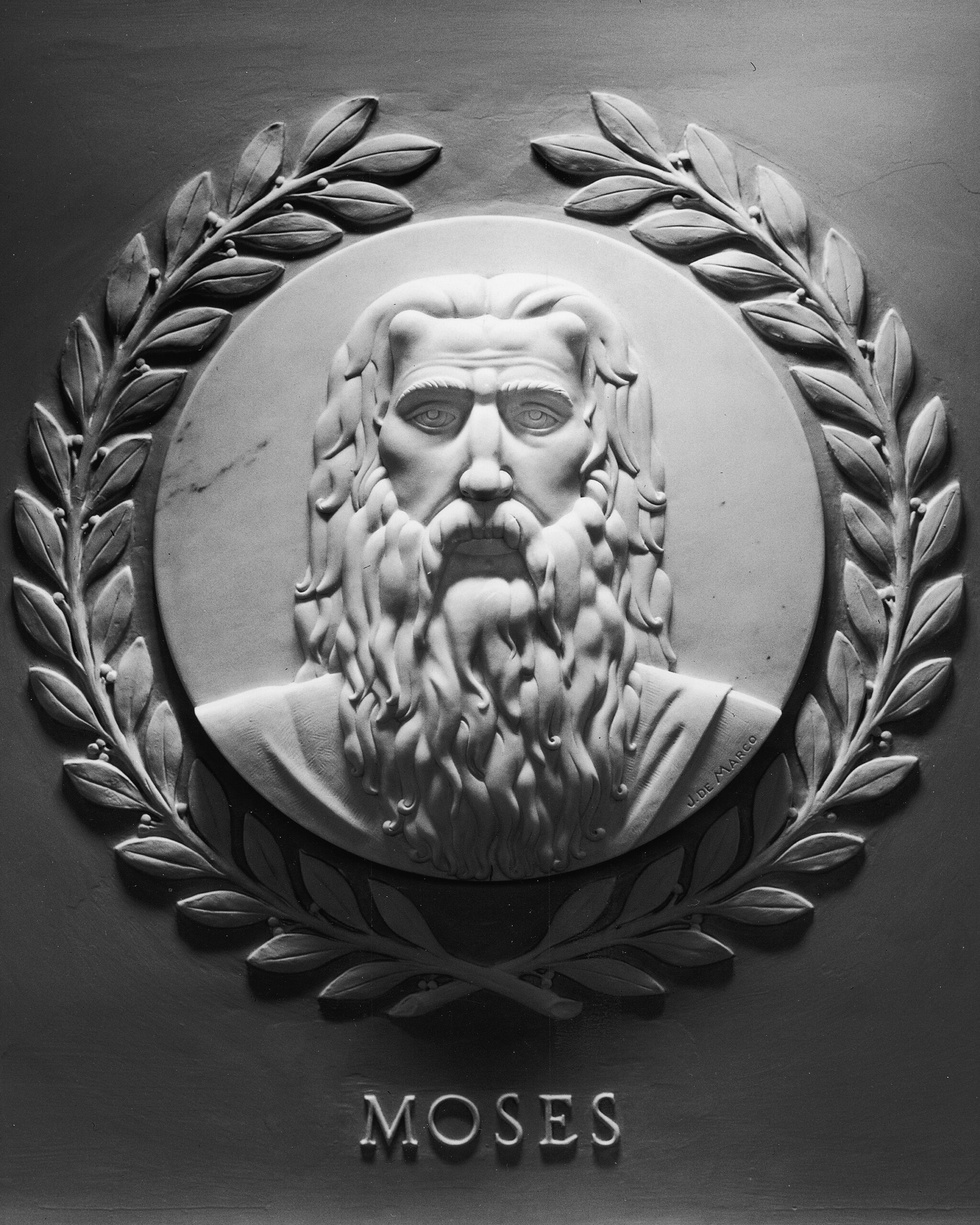
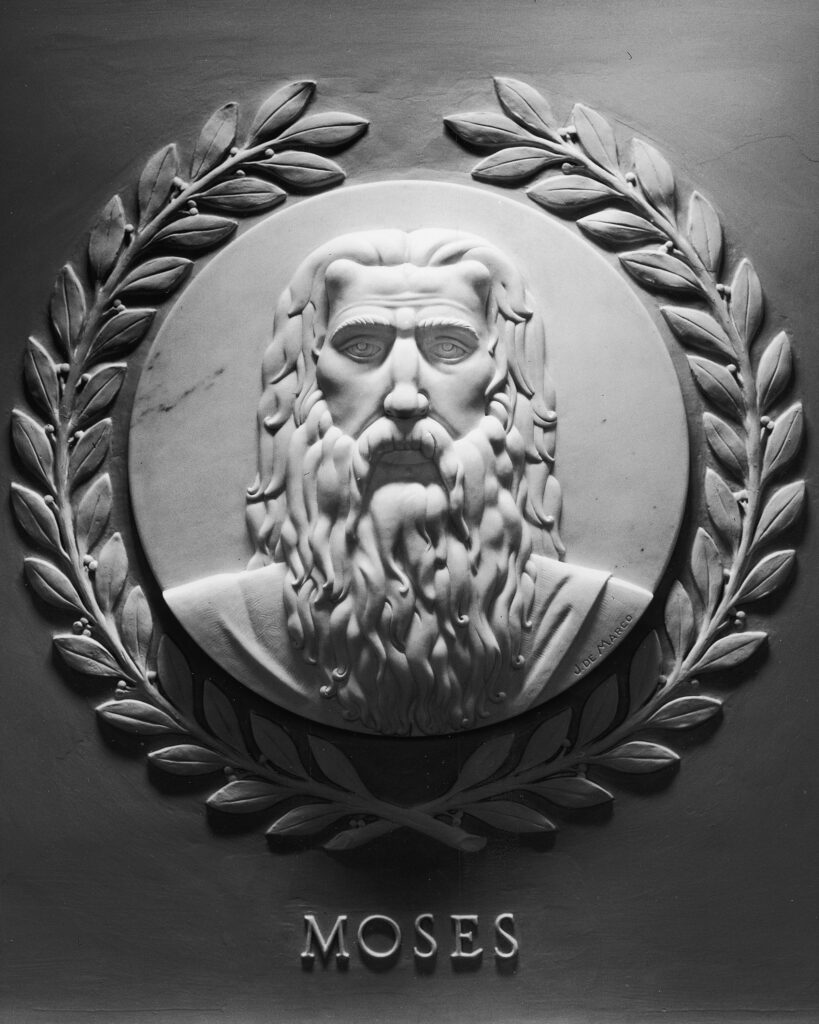 A great deal of the tension that exists in our society today – be it a cultural anomaly or a political argument – can be resolved by simply considering how you would answer one fundamental question.
A great deal of the tension that exists in our society today – be it a cultural anomaly or a political argument – can be resolved by simply considering how you would answer one fundamental question.
 24 Enemies disguise themselves with
24 Enemies disguise themselves with

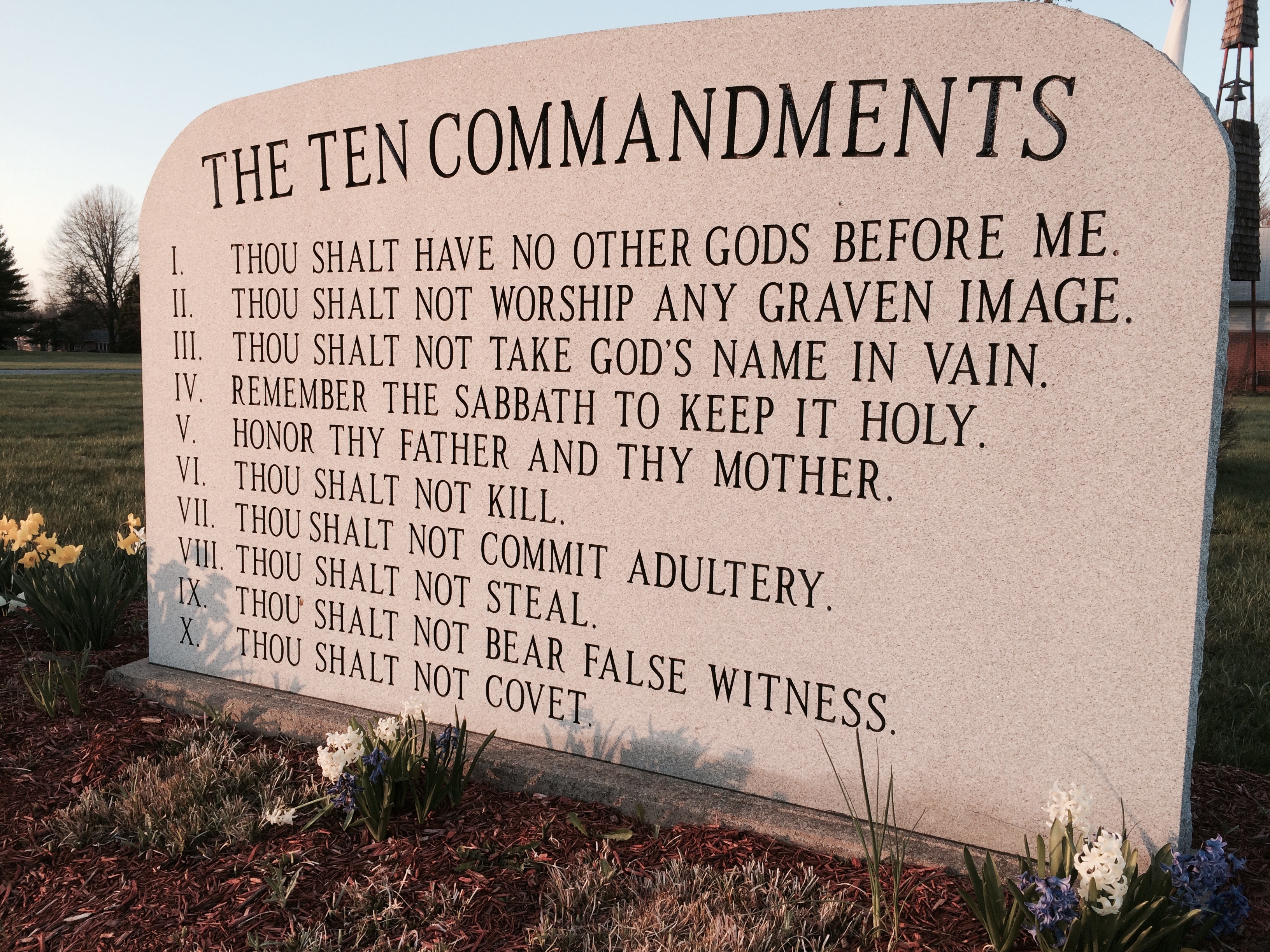
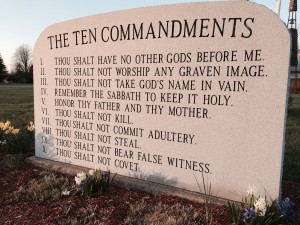




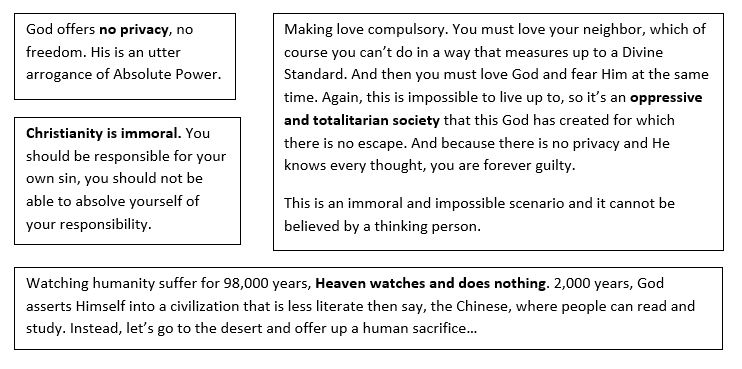






You must be logged in to post a comment.